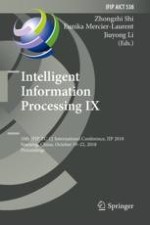2018 | OriginalPaper | Buchkapitel
Mass-Based Density Peaks Clustering Algorithm
verfasst von : Ding Ling, Xu Xiao
Erschienen in: Intelligent Information Processing IX
Aktivieren Sie unsere intelligente Suche, um passende Fachinhalte oder Patente zu finden.
Wählen Sie Textabschnitte aus um mit Künstlicher Intelligenz passenden Patente zu finden. powered by
Markieren Sie Textabschnitte, um KI-gestützt weitere passende Inhalte zu finden. powered by
